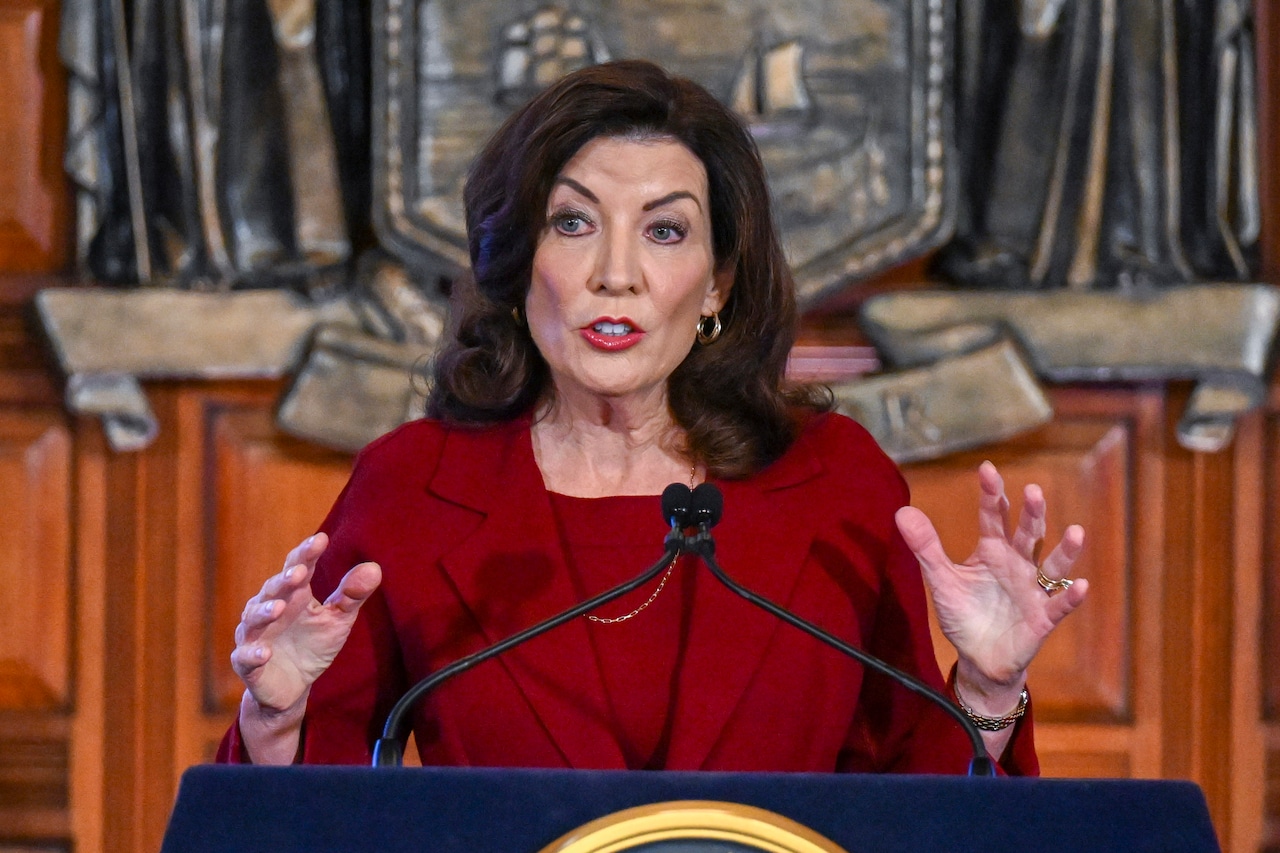Copyright Staten Island Advance

Marking a critical step forward in researching a long-misunderstood and misdiagnosed progressive brain disorder, a new law signed recently by Gov. Kathy Hochul will create a registry for frontotemporal degeneration (FTD) diagnoses in New York. The registry is the first of its kind in the United States, and advocates are hopeful that it will lead to better understanding of the volume of diagnoses within the state. That, they hope, will provide an opportunity to rally for research funding and an eventual cure for the condition that affects the brain’s frontal and temporal lobes. It is also a milestone in the struggle for critical understanding and awareness of the challenges faced by patients and their families, advocates say. FTD is known to first surface with symptoms including progressive inappropriate and compulsive behaviors. It often leads to difficulty speaking and understanding language. The disorder can often cause muscle weakness, tremors and difficulty swallowing, inevitably bringing a decline in ability to function. It typically affects people under age 60 and progresses from two to over 20 years. The bill (S.598B/A.1985C) was sponsored by State Sen. Michelle Hinchey, of the Hudson Valley, and State Assemblymember Amy Paulin, of Westchester County, and was unanimously passed by both legislative houses in the 2025 session. More data will hopefully lead to more research and an eventual treatment to slow or stop the disease, said Meghan Buzby, director of advocacy and volunteer engagement for the Association for Frontotemporal Degeneration, based in King of Prussia, Pennsylvania. “This legislation represents an extraordinary step forward in improving our understanding of FTD and its impact on families, and in laying the groundwork for future policy and research efforts nationwide‚" said Buzby. It often takes nearly four years to diagnose because its symptoms are commonly mistaken for psychiatric conditions, Alzheimer’s disease or Parkinson’s disease. “By establishing a statewide research registry for Frontotemporal Degeneration (FTD), Governor Hochul is leading the way to help track and diagnose one of the least understood forms of dementia,” said a spokesperson for the governor. ”Information is power and this bill will help medical providers and researchers gain a better understanding of this disease and its prevalence in New York to help enhance care and bolster support for those impacted.” Currently, the only treatments are symptom-based and the only diagnoses available are clinical. A firm diagnosis is only possible through a brain autopsy after death, Buzby said. The association works to raise awareness of the condition and educate neurologists and other medical professionals to make earlier diagnoses possible. The new registry will provide a way to collect all FTD diagnoses from physicians within New York state. “Currently, we really don’t have any clear numbers of how many people are living with FTD‚" said Buzby, noting that there is no cure for the disease, only treatments to manage symptoms. There are several types of FTD symptoms, ranging from those involving personality and behavior to language skills and muscle control. It can cause the loss of ability to speak, read, write and understand language. And a gene has recently been discovered linking FTD with ALS, or Lou Gehrig’s Disease, as well. In recent years, the diagnosis of actor Bruce Willis with FTD has brought attention to the condition. The well-known actor was officially diagnosed with FTD in 2023, after previously being diagnosed with aphasia, a condition that affects communication. His wife, Emma Heming Willis, has been a strong advocate for education and awareness surrounding the disease. She continues to be a huge advocate, Buzby said, and has worked tirelessly in support of families and caregivers, as well as advancement towards a cure. Long-term care One of the biggest challenges to those facing FTD is finding long-term care options, Buzby said. “They are somewhat non-existent,” she said. ”The long-term care facilities are really not set up to care for people with behavioral variant FTD. This is a disease that primarily affects folks younger than 60; you can’t put them in a memory-care facility. Many families feel like there’s nowhere for their loved one to go. It’s very heartbreaking." The Association for Frontotemporal Degeneration seeks better education for the medical community, since the disease is currently diagnosed only through a process of elimination, Buzby said. Hinchey is the daughter of the late Hudson Valley Congressman Maurice Hinchey, whose battle with FTD before his death in 2017 drove the senator to make FTD awareness an immediate priority when she was elected to the Senate in 2020. “New York’s FTD Research Registry will help us understand the scale of the disease in New York and address the healthcare and knowledge gaps in our medical community that delay diagnosis and care‚" the senator said in announcing the new law. ”This is progress for a disease that can often feel hopeless, and New York’s law is lighting the way for other states and a national effort that will one day lead to a cure." Paulin said in order to find a cure for FTD, we must first understand it. “I’m proud to have partnered with Senator Hinchey on this legislation, and I thank Governor Hochul for signing it into law so we can improve care and move closer to finding a cure.”



